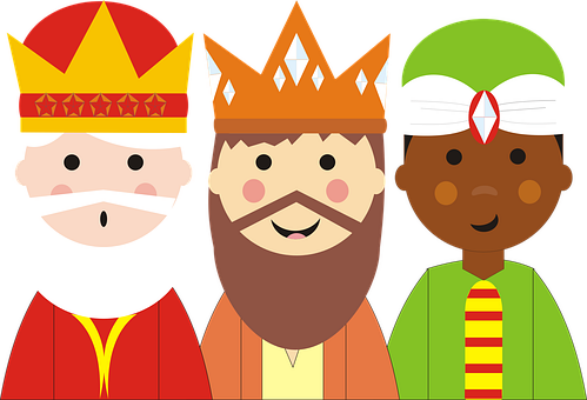Tonight, the children of Spain and many other countries around the world will hardly sleep a wink. They’ll be too anxious and giddy, knowing that in the morning a pile of gifts will be awaiting them. Where do these gifts come from? In Spanish, the answer is easy: Los Reyes Magos. In English, the answer is a bit more complicated. Just as there are three of these gift-bearing camel riders, there are three common terms to describe them: “Magi,” “Wise Men” and “Kings”. So, what are they then?
The first term, “magi”, meaning “skilled magician, astrologer” comes from the Old Persian term magush. This is the word used in Matthew’s gospel when he described the three men who followed a star and arrived in Jerusalem to worship the king of the Jews.
The second option, “wise men,” has been accepted as an adequate translation of “magi” for quite some time. Throughout the Old Testament, the Hebrew word for “wise men” (chakam) is used quite frequently.
Lastly, we could refer to them as “kings,” in English as well. This choice seems to be linked to prophecies from the Old Testament. Moreover, in Medieval times, this was the church’s preferred terminology.
In short, all three options are valid terms to describe these three men in English. When translating, your best option is to consider the context. And if you’re celebrating tomorrow, enjoy!
Interested in learning more about language and translation? Check out our YouTube channel for more on a wide array of topics!

